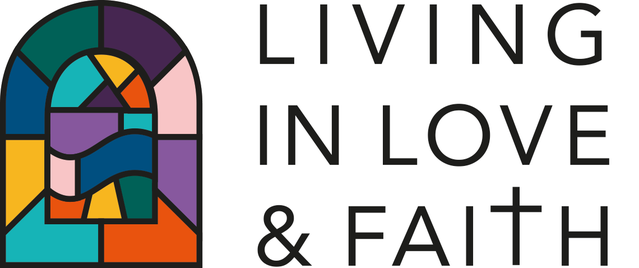
Living in Love and Faith
The Church of England has been looking at issues relating to gender, marriage, sexuality and relationships under the heading ‘Living in Love and Faith’ (LLF) over the past seven years. We’ve been openly discussing our differences on these important subjects.
Now a suite of Prayers of Love and Faith are available here so ministers can dedicate, thank God or bless same-sex couples who are marking a significant milestone in their relationship. These Prayers are now available for use within regular worship. This is the fullest pastoral provision that can be provided without changing the Church’s doctrine that Holy Matrimony takes place between one man and one woman.
In February 2025, the Church of England's General Synod heard about progress on LLF, towards a point where the House of Bishops and General Synod could vote on a package of proposals at a future meeting. This package could include plans for bespoke services of Prayers of Love and Faith, alongside appropriate pastoral reassurance and consideration of clergy entering same-sex marriages. This will involve feedback from Diocesan Synods on draft proposals during 2025. For our diocese, this happens on June 14. Details here.
The latest document considered by General Synod members as they discussed LLF in February 2025 is available to download from here.
Latest resources
The LLF Programme Board have put together two leaflets that give some updates:
- a general leaflet on the process to date, which details key aspects of the draft proposals for the use of the Prayers of Love and Faith (PLF) including in standalone services, and the accompanying proposed pastoral reassurance.
- a second leaflet, which provides more detail on the theological work to date by the Faith and Order Commission and the Episcopal Reference Group.
There's also a video recorded by Bishop Martyn Snow, lead bishop for LLF, which is above and here.
These resources can be accessed and downloaded via the Church of England website here, including print ready files for those who prefer to use hard copies. You are welcome to use these resources (and the video above) within your parish or deanery.
Prayers of Love and Faith
There are a number of resources available from the national Church of England to help us as we consider how to use Prayers made available for same-sex blessings. Some of them are here:
- To download a brochure containing the Prayers of Love and Faith, which can be used in regular worship services from December 17, click here.
- To download the Pastoral Guidance which accompanies these Prayers and answers questions about their use, click here.
- To download a theological reflection on the Prayers, which was presented to our General Synod in November 2023, click here.
- For the press release announcing these changes, click here.
Latest documents
-
Living in Love and Faith
Living in Love and Faith update, Feb 2025
A summary of progress on Living in Love and Faith, presented to General Synod in ... Read more
-
Living in Love and Faith
Ad Clerum Prayers of Love and Faith Dec 2023
Bishop Jonathan wrote to all clergy, licensed lay ministers, clergy with PtO and churchwardens about ... Read more
-
Living in Love and Faith
General Synod Nov 2023 LLF theological reflection
This is part of a paper presented to the Church of England's General Synod in ... Read more
Bishop Jonathan
Bishop Jonathan gave his views on the LLF process in his Presidential Address at Diocesan Synod in November 2022. His column for our diocesan magazine was based on that address, and is reproduced below:
Preserve God's gift of unity
The Church of England’s ‘Living in Love and Faith’ process has entered its discernment and decision phase. Do join me in praying for the Holy Spirit’s wisdom and guidance, as a possible way forward is framed by our bishops and debated at General Synod in February 2023.
There are, of course, diverse and conscientiously held perspectives among the bishops in relation to identity, sexuality, relationships and marriage; perhaps especially over the question of how to respond faithfully to same-sex relationships. Personally, I am arguing for positive change which would enable us, as a Church, to bless, recognise and encourage signs of God’s grace, presence and holiness in relationships between same-sex couples.
I am aware that many good and faithful Christians will not (or feel they cannot or must not) share my view, believing in all conscience that such a move represents an illegitimate development in the teaching of the Church. But that diversity of view is understandable in a community wrestling with human complexity, truth and the meaning of faithful witness today.
Common ground is emerging too, in the desire of the bishops to preserve the gift of unity in Christ’s Body, the Church. I would argue that Christ’s gift of unity runs deeper than any differences in theological, ethical or pastoral interpretation of these vital issues.
I’m drawn to the verse in John’s gospel: ‘The Word was made flesh and dwelt among us’. The Greek word for ‘dwelt’ suggests ‘tabernacled, set up tent’. It paints a beautiful picture of what God did by entering our human condition, taking flesh and enduring the Cross to draw humanity into fullness of life in Christ: God offers us, in Christ, a big tent to dwell within. Christ is our True Home.
To put it theologically, through the proclamation of the gospel, humanity is invited, through faith, baptism and the gift of the Spirit, into union with Christ’s incarnate, risen and ascended life. As St Paul writes of the early church: ‘our life is hid with Christ in God’.
Fortunately, we don’t get to choose who Jesus invites into the Tent of his Body or calls into ecclesia, the Church on earth. Christ’s Body is a big and hospitable tent: with space for every sinner who, by grace, hears and accepts his invitation to life.
It’s Christ who invites us, who invites you, into this Tent. No test of orthodoxy, class, learning or culture is required; rather, entry is by ‘yes’: our responsive ‘yes’ to Christ’s unmerited, gracious and prior ‘yes’ to us. Of course, navigating life within this Tent, brings untold riches, joys and a lifetime of difficulty – not least the infuriating presence of those also invited into the Tent on what may feel to us an indiscriminate, unsound basis.
More national resources
You can make use of the national C of E resources at any time, to study these issues for yourselves. The main introduction to the Living and Love and Faith resources is here, and you can also link directly to:
- the Living in Love and Faith Learning Hub (which includes the five-session video-based course, podcasts, films, and a large online library of resources about the themes of identity, sexuality, relationships and marriage);
- a chance to order or download a copy of the Living in Love and Faith book;
- some information about the purpose of providing these LLF resources;
- the latest details of what was agreed at the February 2023 and November 2023 meetings of General Synod.
Upcoming Events
-

13 July, IN: Worship
Open Table
A safe, sacred space for LGBTQIA+ Christians and all who believe in an inclusive Church. read more
Introductory video
Do also watch this video, which is the national C of E’s introductory video to Living in Love and Faith: